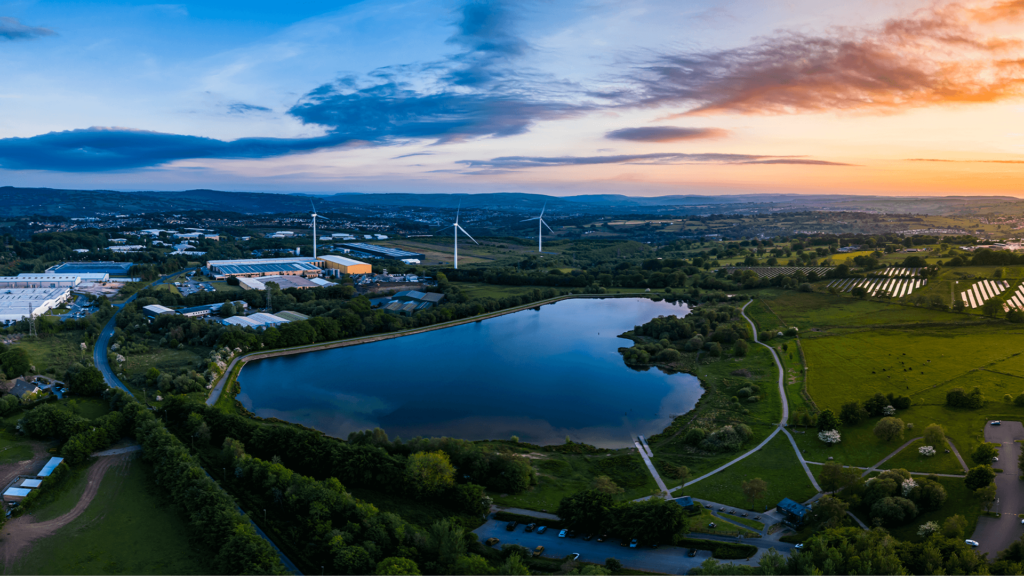As part of Wales’s efforts to achieve “net zero” by 2050; the Infrastructure (Wales) Act 2024 received Royal Assent and became law on 3rd June 2024. The New legislation reforms and aims to streamline the consenting process for significant infrastructure projects in Wales by replacing the overly complex and outdated Developments of National Significance regime with a more cohesive system. Tom Jones and Freya Piper take a look at the new Act and its implications.
Prior to the enactment of Infrastructure (Wales) Act 2024 (IWA), the Developments of National Significance regime (DNS) was the primary system for managing significant infrastructure projects (SIPs) in Wales. Multiple consent processes and a lack of clear guidelines and the requirement for coordination across many regulatory frameworks caused delays and uncertainty, making it difficult for developers to navigate the planning approval process.
What does the IWA do?
The IWA overhauls existing legislation and introduces a unified framework for SIPs to gain consent to move forward, with the goal of replacing the old fragmented system with a “one-stop shop” model. This new regime closely mirrors the Development Consent Order regime under the Planning Act 2008 in England, providing a more streamlined and efficient process.
The IWA establishes a new type of consent called a ‘Welsh infrastructure consent’, which will be issued for SIPs. Much like a development consent order in England; a Welsh infrastructure consent eliminates the need for separate planning permissions and related approvals. An examining authority will review infrastructure consent applications and make decisions within a specific timeframe.
The statutory pre-application requirements to notify and consult on development proposals are similar to those under the development consent order regime in England. Welsh infrastructure consent orders can also give the planning authority the power to compulsorily purchase land, waive the need for additional consents, and/or establish provisions for matters such as traffic regulation.
Concerns of local communities are also planned to be addressed as the unified Welsh Infrastructure Consent process is designed to encourage engagement between communities and developers.
What Development Does the IWA Apply to?
The IWA provides that Welsh infrastructure consent is required for significant infrastructure projects”/SIPs, as defined in Part 1 of the IWA, which include certain energy, transport, water, wastewater and waste projects. A Welsh infrastructure consent is required under three broad circumstances defined in Part 2 of the IWA:
- When a project meets the thresholds in the IWA for a SIP
- When the Welsh Ministers direct a project to be treated as a SIP or
- When a project is designated as a SIP in the National Development Framework for Wales.
The Act also sets out various categories of SIPs, with provisions for new or different SIPs to be prescribed.
What does the IWA mean for developers?
The IWA 2024 represents a significant modernisation and advancement in the management and consenting of large-scale infrastructure projects in Wales. By introducing a more integrated and efficient system, the Act’s aim to address the shortcomings of the previous DNS regime is clear. The goal is that a more streamlined and modern process will reduce costs, delay, and uncertainty for developers. Time will tell to see if the IWA meets its aims as secondary legislation is developed to flesh out the details.
The increased harmonisation with the development consent order regime in England will also make it easier for cross-border developments and developers to understand what their significant infrastructure project needs for approval. Overall, developers can in theory look forward to a more streamlined process that enhances the quality and success rate of infrastructure projects, ultimately contributing to the sustainable development of Wales. Two consultations are currently running, one focusing on pre-application consultation procedures, and the second on the fees for the consenting process.
For more information or advice on the IWA 2024, please contact Tom Jones in our Planning and Commercial Disputes team who will be able to support you.




